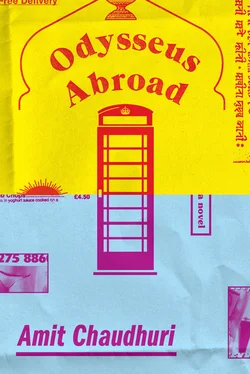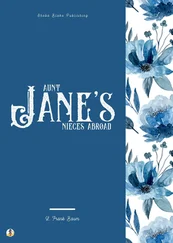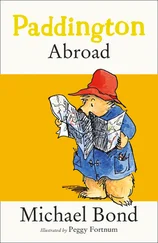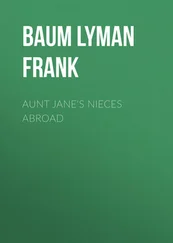His uncle said AIDS was a myth. Western scaremongering. “These kinds of diseases have been around forever. I saw people dying in Sylhet — of sexual deviancy. They’ve put a fancy name to it.”
Ananda had wondered about his uncle’s abstinence. He’d considered the matter of his sexuality. In fact, at seventeen, Ananda had even put the question to himself: Could I be a homosexual? He’d been worried — he didn’t feel the sort of aggressive sexual desire towards girls he liked that he thought was appropriate. For two months, when he was seventeen, he’d tortured himself. Just as Sylvia Plath had confessed, “I’ve begun to think like a Jew, feel like a Jew,” he’d worked himself up to a state where he’d begun to feel and think like a gay person. But he found he could cope with this new identity. In the abortive business with the cousin, he’d invoked celebrated allies from history who’d purportedly fallen in love with theirs — Gautama Buddha, Atul Prasad, Satyajit Ray. And, in his agonised period, he summoned names to prove that creative people had to be gay: Ginsberg, Proust, Shakespeare. Then it occurred to him that he’d never wanted to kiss a man. The thought had no appeal at all. Soon, the notion that had gripped him melted, like a fever that had run its course. He went to the two prostitutes in order to confirm his sexuality. The matter was more or less settled.
It was settled where his uncle was concerned too. Ananda had looked for homoerotic inclinations, and found none. Could he be impotent? Ananda had said bluntly: “Do you have wet dreams? You know what I mean?” His uncle had said, unflappable: “I’m quite normal, you know.”
But he had preferences. Today, on the tube, he’d leaned towards Ananda when a mildly plump West Indian woman — unmindful, maybe tired — got on at Camden Town and sat opposite them, and said with an evil smile: “Pupu, I’m feeling some lust for her.” Ananda speculated anxiously if she’d heard. But the hum was in the foreground.
A narrow range preoccupied his uncle on the menu of desire: black and working women. Granted, his love for Gilberta had been more devotion rather than Eros — heartfelt and unsullied (which is why it had brought him pain). But, as a rule, sexual desire and romantic longing were, for his uncle, incompatible with each other. It was one of the reasons, he’d implied, he hadn’t married. He’d gone out with refined Bengali women and Englishwomen, but they were only good for attentive walks and conversations about poetry and life. On the other hand, maidservants: they were funny and down-to-earth.
There were no lights on in either Mandy’s flat or the Patels’. Ananda’s own second-floor windows reflected the sun. Eyes lowered, the neighbours hanging, in a manner of speaking, over his head, Ananda unlocked the door. The morning’s clutter had shrunk. They went up, making an extroverted thumping sound. As Ananda attained the first-floor landing, Mandy’s door opened and shut again. Maybe she’d wanted to pounce on him about his morning practice and changed her mind. Hold on — she wasn’t home. Only the budgies, stoic and immobile. His uncle was humming away in his train — soft, deep voice.
—
Once inside, he went to a window and lifted it further up. The oncoming night was festive and menacing. But it was a moot point whether Tandoor Mahal — the fairy lights around its menu glowing — would get customers. It had to. It was Friday. The inside of the flat was in shadow. When he pressed the switch, cushions sprang out of the dark.
“Pupu.” His uncle dangled the Budgens bag. “Keep these in the kitchen.”
“You sure you won’t take them home?” asked Ananda hopefully.
“O no no no!” his uncle said, entirely resolved. “I’d never eat them.” Yes, he would finish them, probably single-handed, but only in company; here. Ananda could imagine him dithering over a laddoo in 24 Belsize Park. Laddoos were not, ordinarily, consumed in solitude.
“Keep the bag,” added his uncle.
“You won’t need it?”
“O, these bags!” He shrugged, as if it possessed no value. “I have hundreds.” A treasure trove.
—
In the kitchen, he noticed the smell of his mother’s cooking. The kitchen was still but for the fridge’s neutral throbbing. A secret place.
Returning to the room, he saw his uncle crouching over last year’s books on shelves Ananda and his mother had brought home from Habitat — books whose alienness he’d had to understand and tame and which he was now liberated from. His uncle was examining Piers Plowman .
“I haven’t heard of this Langland,” he said. “The English poets we knew of were Milton and Shelley…Shelley was the greatest Romantic kobi, wasn’t he?” Solemnly he intoned: “ ‘Let pity clip thy wings before you go.’ ”
“Langland is from much further back.”
“Yes, this doesn’t even read like what you and I would take to be English,” said his uncle, frowning and scrutinising the page. “Too intellectual. Maybe a bit above my head…” he said with sly self-deprecation.
“Langland wasn’t an intellectual, Rangamama,” said Ananda, bristling. “At least, I don’t think so. To tell you the truth, very little’s known about him.”
His uncle lowered himself on to a chair by the dining table. He still hadn’t taken off his pinstripe jacket.
“What are you reading? I hope you have a decent horror novel at hand?”
“Yes, it’s not bad,” replied his uncle casually, placing his right leg on the left knee. “Also, I’m rereading Debojan . Wonderful book! Have you heard of it?” How could Ananda have not? It was a sacred text to his uncle; every other conversation was punctuated by a reference to it. “It’s by Bibhutibhushan Banerjee. You know Bibhutibhushan, of course?” About Bengali literature, his uncle presumed a scandalous ignorance on Ananda’s part. Ananda was from a breed on a new planet, impossibly removed from the world that had formed his own parents. That old Bengal that his uncle had left behind, and which was gone forever…Ananda in fact knew Bibhutibhushan, who’d written Pather Panchali —an unprepossessing man, but a great cherisher and noticer of the everyday, the mundane; he’d had no clue earlier that there was another side to him, which was drawn to the transmigratory.
“What’s the book about?” said Ananda, though he’d had pretty intricate accounts before from his uncle.
His uncle was happy to take up the theme again.
“It’s highly interesting,” he said, with the air of an anthropologist. “For instance, he describes the astral plane.”
“What’s that exactly?”
“It’s a plane much like the one we live on, but where you experience things more intensely. Even a beautiful summer’s day like today would be so much more vivid on the astral plane.”
“I see.” Ananda weighed the remark, and tried to conceive how this day’s beauty might increase. “In what way?”
“Things… tremble on the astral plane.”
He vibrated one hand, like a man who’d been administered a jolt of electricity.
“It’s mainly about life after death,” he said, moving on rapidly, unrestrainably. “The soul journeying through the stars and the cosmos. All sorts of extraordinary things happen on that journey! At a certain point, it can hear the screaming of the souls of various animals that have been slaughtered for our consumption.”
Ananda nodded — as if he could almost hear the dreadful din himself.
“Do you know,” said his uncle, untying his shoelaces, “that when a man dies he often doesn’t know what’s happened? It’s described in Debojan . A man suddenly falls dead on the street, say, or is hit by a car. The body’s taken away in an ambulance. But the soul doesn’t realise what’s going on. So the man gets up, goes home as usual.” Painfully, he wrested a sneaker off. “Everything’s as it was. A while later, he notices his wife and children are weeping. He thinks: What’s wrong? He goes to them. But they continue to mourn; they don’t seem to notice him. It’s at that point that an already dead person might come to him and break the news — and guide him to the other world. He’d be reluctant to go, of course; he might have a daughter to marry, a debt to pay. It’s hard to pull away.”
Читать дальше











